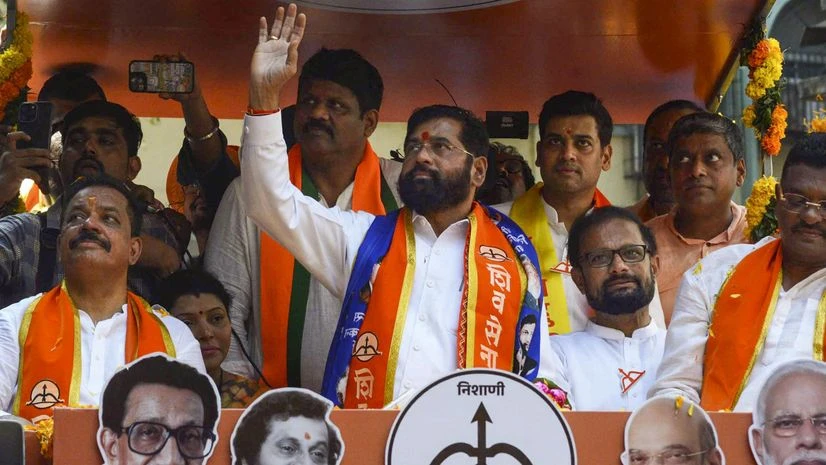As nominations for the Maharashtra Assembly elections concluded on Tuesday, both major political alliances — the Mahayuti and the Maha Vikas Aghadi (MVA) — are grappling with substantial challenges from rebel candidates within their ranks.
The Mahayuti alliance identified approximately 80 rebel candidates, while around 150 politicians across parties have filed nominations, challenging official candidates in various constituencies. With the withdrawal deadline set for November 4, both alliances are now racing against time to persuade rebels to step aside to avoid splitting internal votes.
Maharashtra polls: MVA and Mahayuti outline seat distributions
The MVA has announced 286 candidates, covering almost all of the 288 Assembly seats, with 103 candidates from the Congress, 96 from the Shiv Sena (UBT), and 87 from the Nationalist Congress Party (NCP), alongside some seats allocated to minor allies.
Meanwhile, the Mahayuti fielded 284 candidates, including 80 from the Bharatiya Janata Party (BJP) and 52 from the NCP, also supporting candidates from smaller allied groups. Notably, the Mahayuti listed two candidates in five constituencies and left two constituencies uncontested, totalling 289 candidates.
Maharashtra Assembly polls: High-profile rebels
Some prominent rebels include BJP’s Gopal Shetty from Borivali, who is running against the official candidate Sanjay Upadhyay, and Sameer Bhujbal, nephew of NCP minister Chhagan Bhujbal, who is challenging Shiv Sena MLA Suhas Kande as an Independent candidate in Nandgaon.
Maharashtra elections: Unsettled seat-sharing dynamics
Following weeks of negotiation, both alliances finalised their seat allocations. The Mahayuti alliance maintained secrecy around its seat-sharing until the nominations, while the MVA arrangement saw frequent adjustments. Initially, the Congress, the UBT Shiv Sena, and the NCP planned to contest 103, 90, and 85 seats, respectively.
However, a proposed equal distribution led by UBT Sena MP Sanjay Raut suggested 85 seats each, causing some friction. Ultimately, Congress leader Balasaheb Thorat advocated for a more flexible arrangement, with each party targeting 90 seats, which was finalised after discussions with senior leaders Sharad Pawar and Uddhav Thackeray.
More From This Section
A senior Congress official clarified that seat allocations were based on a merit-based approach, prioritising candidates' chances of winning. NCP state president Sunil Tatkare echoed this sentiment, noting that Mahayuti’s strategy evaluated candidates’ “winnability factor” to maximise electoral success. Tatkare plans to meet senior Mahayuti leaders to address outstanding issues before the withdrawal deadline.
Mumbai BJP chief Ashish Shelar expressed confidence in Mahayuti’s ability to retain power, asserting that their candidate selection was responsive to public needs. He expects a clearer political picture once the withdrawal deadline passes.
AICC secretary Ramesh Chennithala similarly expressed optimism, stating that Maharashtra’s voters would dismiss the current administration, which he characterised as “corrupt.”
As both alliances work to settle internal disputes, their candidate management strategies could prove decisive in the upcoming election.
Maharashtra Assembly elections: Full election schedule
>Date of issue of gazette notification: October 22
>Last date for making nominations: October 29
>Date for scrutiny of nominations: October 30
>Last date for the withdrawal of candidatures: November 4
>Date of polling: November 20
>Date of counting of votes: November 23
>Date before which elections will be completed: November 25

)
